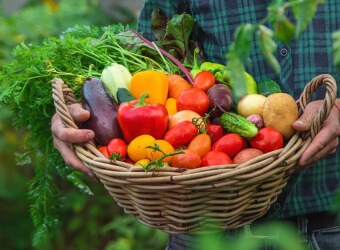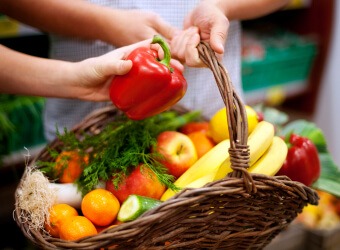Organic food is produced without the use of synthetic pesticides, herbicides, genetically modified organisms (GMOs), or artificial fertilizers. Instead, organic farming relies on natural methods like crop rotation, composting, and biological pest control. Animals raised for organic meat, eggs, and dairy products are typically given organic feed and have access to the outdoors, allowing for more humane and natural living conditions.
First and foremost, organic food is nutrient-rich. Organic fruits, vegetables, and grains are often found to be richer in essential nutrients, such as vitamins and minerals, compared to conventionally grown produce. These nutrient-dense foods can help support your overall health and well-being. Additionally, organic farming practices prioritize.
Choose organic food, not only for a healthier you but for a happier planet too. It’s a conscious choice that nourishes both body and Earth.
Michel Clarck
Organic farming methods are designed to minimize soil erosion, reduce pollution, and conserve water. By choosing organic food, you are supporting sustainable agricultural practices that protect the planet. Furthermore, organic food is non-GMO by definition, so you can be sure that you’re not consuming genetically modified organisms, which some people prefer to avoid due to potential health and environmental concerns.
Many people find that organic produce has a fresher, more natural taste compared to conventionally grown counterparts. This can make your meals more enjoyable and encourage you to eat more fruits and vegetables. Moreover, choosing organic often means supporting local, small-scale farmers who prioritize sustainable and ethical farming practices. This helps create a more resilient and diverse food system.
Tips for Incorporating More Organic Food
To make the transition to an organic diet smoother, start small by prioritizing certain items like the “Dirty Dozen” and gradually expand your organic choices. Shopping at farmers’ markets can be a great way to find fresh, organic produce while connecting with local farmers. When buying packaged or processed foods, always look for the organic certification.


Consider planting a small organic garden at home or joining a Community Supported Agriculture (CSA) program to enjoy fresh, pesticide-free produce regularly. Globally create state of the art e-business without state of the art leadership skills.
Changing your eating habits to include more organic food is a positive step towards better health for both you and the planet. While it may require some adjustment and investment, the long-term benefits are well worth it. So, take the first step today and make organic food a more significant part of your diet. Your body and the Earth will thank you.

